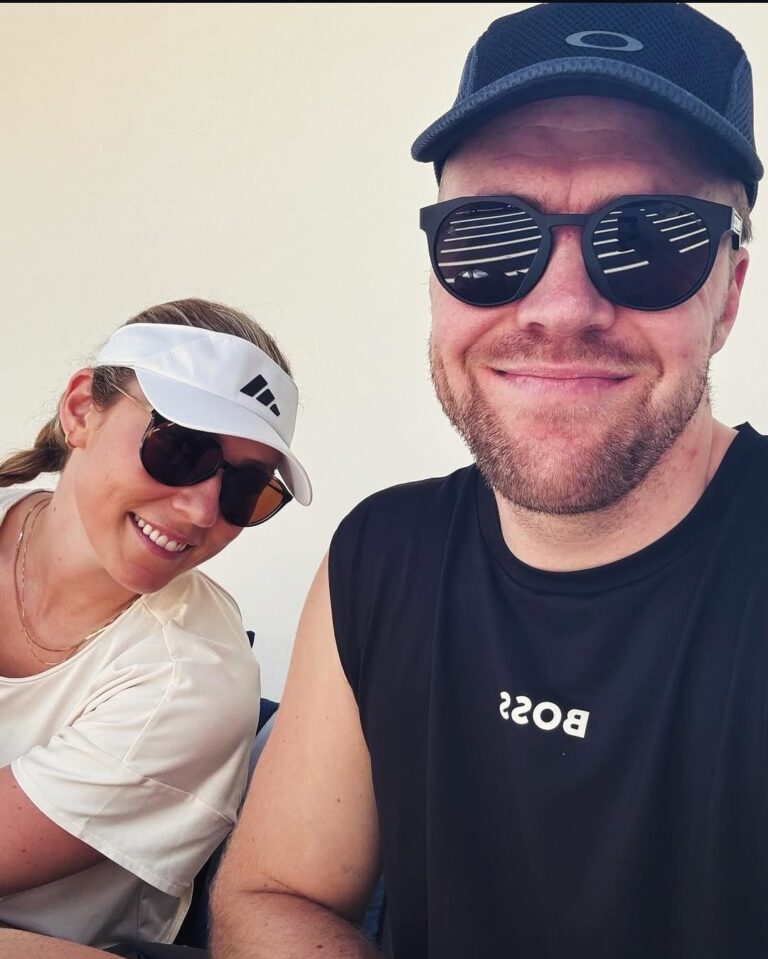In the high-stakes world of alpine skiing, where split-second decisions can lead to glory or catastrophe, Aleksander Aamodt Kilde has always been the epitome of fearless precision. The Norwegian downhill specialist, a two-time Olympic medalist and former World Cup overall champion, has carved out a legacy of dominance on the world’s most treacherous slopes. But on January 13, 2024, during a blistering run on the infamous Lauberhorn course in Wengen, Switzerland—one of the longest and most demanding downhill tracks in the sport—Kilde’s world shattered in an instant. What began as a routine high-speed descent turned into a “brutal” crash that left him airlifted to a hospital, fighting not just for his athletic future, but for his very survival.
Now, more than 21 months later, Kilde is breaking his silence in a raw, unfiltered interview with Olympics.com, describing the ordeal as nothing short of “a matter of life and death.” The 32-year-old skier, who is engaged to American alpine icon Mikaela Shiffrin, detailed the harrowing chain of events that sidelined him for an entire season, triggered a life-threatening sepsis infection, and forced him to confront the fragility of his career and personal life. “It’s not a stretch to say I’m lucky to be alive,” Kilde admitted, his voice steady but laced with the weight of what he’s endured. “There were moments when it felt like the end—physically, mentally, everything.”
The crash itself was a nightmare unfolding in slow motion. Kilde, then at the peak of his powers after a stellar 2022-23 season where he claimed eight World Cup victories, was navigating the final stretch of the 4.2-kilometer course at speeds exceeding 100 km/h. As he powered through the S-turns, a momentary loss of edge sent him tumbling into the netting. The impact was devastating: a dislocated shoulder that tore ligaments and muscles, a deep laceration to his calf requiring immediate stitches, and extensive bruising that left no fractures but shook his body to its core. He was helicoptered to a hospital in Bern, Switzerland, where initial assessments revealed the extent of the damage. “I remember lying there, thinking, ‘This is it—my season’s over, maybe more,'” Kilde recalled. “But I had no idea the real fight was just beginning.”
What followed was a cascade of medical setbacks that transformed a survivable injury into a prolonged battle for health. Just weeks after the crash, Kilde underwent surgery in Switzerland to repair the shoulder and close the calf wound. He began rehab with cautious optimism, posting updates from his hospital bed that showed Shiffrin by his side, her presence a beacon of normalcy amid the chaos. One poignant photo captured the couple in a quiet moment, Shiffrin tending to him with ice cream in hand, a stark contrast to the adrenaline-fueled world they both inhabit. “Mikaela was my rock from day one,” Kilde said. “She’s been through her own hell with injuries, so she gets it—no pity, just real support. Without her, I don’t know if I’d have pushed through.”
But optimism gave way to alarm in the summer of 2024. An “angry infection” took hold in his repaired shoulder, escalating into sepsis—a systemic response that can turn deadly without swift intervention. Kilde was rushed back to the hospital in late July, where doctors discovered the infection had spread, necessitating a second surgery in Austria just a month later to clean out the affected tissue. The antibiotics he endured for months ravaged his system, stripping away muscle mass and strength he had spent years building. “I lost over 10 kilos—weight I can’t afford to lose as a speed skier,” he explained. “Every day was a grind: pain that wouldn’t quit, fevers that hit like a wall, and this constant fear that one wrong move could end it all. It wasn’t just about skiing anymore; it was about getting back to a life where I could hug Mikaela without wincing.”
The emotional toll was equally brutal. Kilde, known for his unflappable demeanor on the slopes, found himself in uncharted territory. He and Shiffrin, whose own 2024-25 season was derailed by a severe abdominal injury in Killington that included muscle trauma and a puncture wound, shared raw conversations about the sport’s toll. In a candid moment during rehab, the couple even broached the idea of retirement. “We talked about it—seriously,” Kilde revealed. “Both of us were banged up, questioning if the wins were worth the risk. ‘Maybe enough is enough,’ we said in the heat of it. Life without racing? It could be good. But deep down, we know this is who we are. Mikaela reminded me: ‘You’ve got more to give.’ That pulled me back.”
Shiffrin’s role in his recovery cannot be overstated. The 30-year-old American, who in February 2025 became the first woman to reach 100 World Cup victories despite her own setbacks, turned caregiver and motivator. From hospital visits to shared rehab sessions in Colorado—near her hometown of Edwards—Shiffrin provided the emotional anchor Kilde needed. Yet, their paths diverged painfully at times; while she chased history on the slopes, he watched from afar, undergoing yet another shoulder procedure in February 2025 that forced him to miss the entire 2024-25 campaign. “Seeing her hit that 100th win from a hospital bed… it was bittersweet,” Kilde said. “Proud doesn’t cover it. She’s not just my fiancée; she’s the toughest person I know. Her strength? That’s what got me through the dark days.”
As October’s chill signals the approach of the 2025-26 World Cup season, Kilde’s eyes are fixed on redemption. He’s back on skis—dryland training in South America has progressed to gentle snow sessions—and targeting a triumphant return at the Beaver Creek downhill on December 5, 2025. The Colorado course holds special significance: It’s just miles from home, and the site of one of his past victories. Qualification for the 2026 Milano Cortina Olympics is the ultimate prize, a chance to defend his Beijing silver and add to his bronze. “Beaver Creek is my benchmark,” he said firmly. “If I nail that, the Games are next. My shoulder’s at 90%—strong enough to race, but I’ll be smart. No rushing back into the fire.”
Kilde’s story is more than a tale of physical resilience; it’s a testament to the human side of elite athletics. In a sport where crashes like his and Shiffrin’s underscore the razor-thin margin between triumph and tragedy, his openness about the “nightmare” serves as a wake-up call. “Skiing’s magic, but it’s brutal,” he reflected. “We push limits because we love it, but injuries like this? They make you appreciate the basics—health, love, the people who stand by you.” For fans, the sight of Kilde and Shiffrin together again—perhaps celebrating a podium in the Italian Alps—promises a heartwarming chapter in their shared saga.
As the snow begins to fall, all eyes turn to this power couple’s next moves. Kilde’s message to fellow racers? “Embrace the fight. It’s not just about speed; it’s about surviving to race another day.” In the end, his nightmare isn’t defined by the fall, but by the rise—and with Shiffrin in his corner, that rise looks unstoppable.
